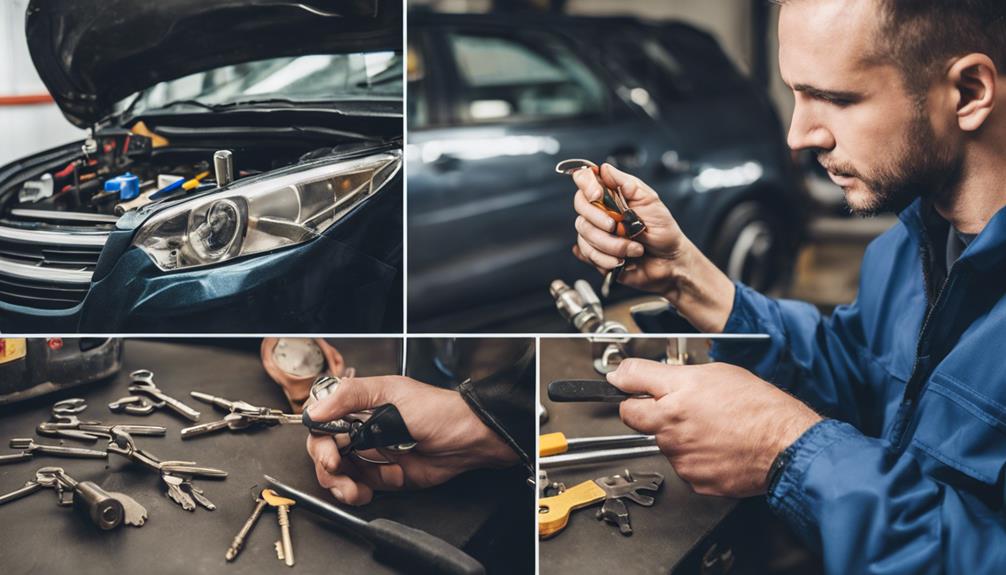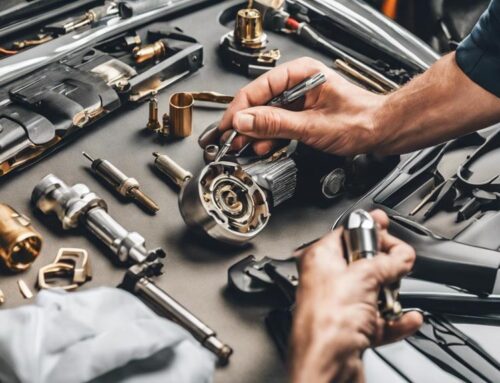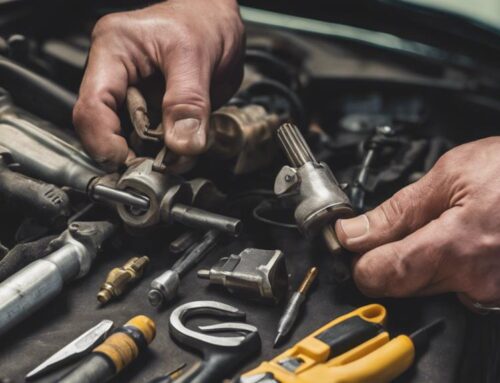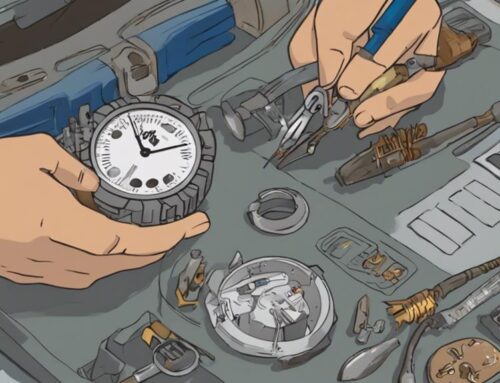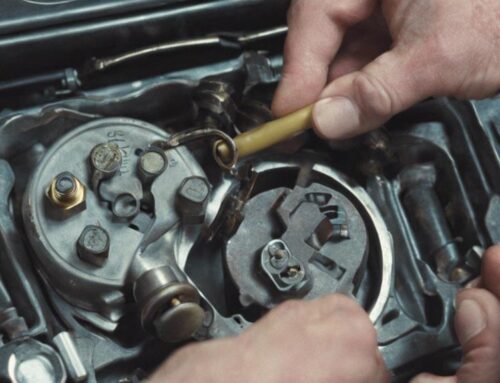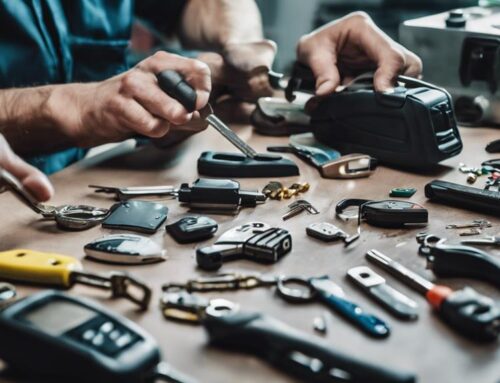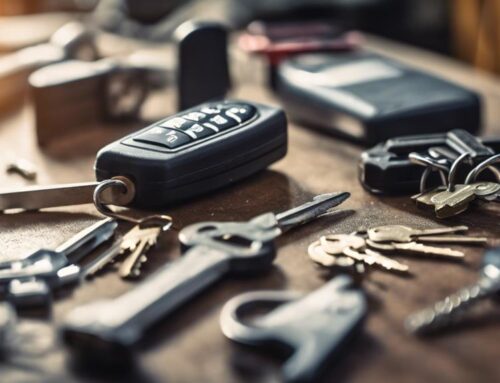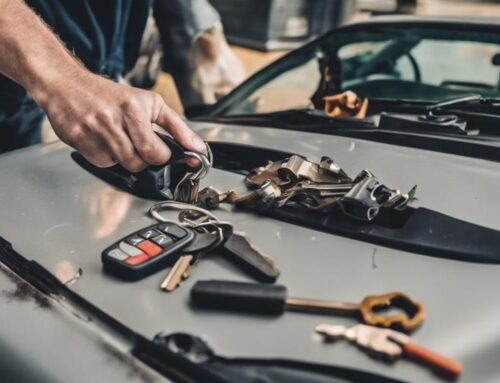Is it really wise to take on the task of rekeying your car's ignition yourself? While the allure of saving money can be strong, you might find that the process is more complicated than it seems. Without the right tools and knowledge, you could risk damaging your ignition or worse, leaving your vehicle vulnerable. So, is the DIY route worth the potential headaches? Or does hiring a locksmith offer a more secure and stress-free solution? Let's explore the pros and cons of each option.
Key Takeaways
- DIY rekeying requires specific tools and knowledge; improper handling can lead to costly errors and security vulnerabilities.
- Professional locksmiths have the expertise and training to ensure ignition systems are rekeyed correctly and securely.
- Rekeying enhances vehicle security, but mistakes during DIY attempts can compromise this security.
- Hiring a locksmith saves time and reduces frustration, as they complete the job efficiently and effectively.
- Consider the cost implications; professionals may offer better long-term value compared to potential DIY repair expenses.
Understanding Ignition Rekeying
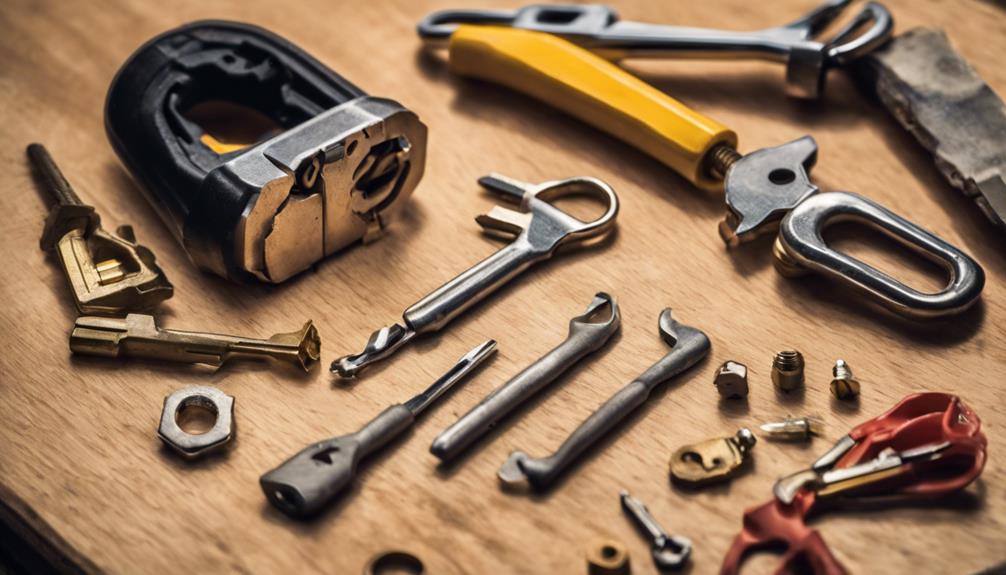
When you're considering rekeying your car's ignition, it's essential to understand what this process entails. Rekeying involves altering the internal pins of your ignition lock, rendering old keys ineffective. This enhances your ignition security by ensuring unauthorized access is minimized. By rekeying, you gain control over who can start your vehicle, a powerful advantage in safeguarding your investment. The rekeying benefits extend beyond just security; it can also save you money compared to complete ignition replacement. In addition, if you've lost your keys or suspect theft, rekeying provides peace of mind. Understanding these aspects empowers you to make informed decisions about your vehicle's safety, enhancing both your confidence and control over your automotive security. If you want to learn more about the differences between car ignition rekeying and replacement, check out this detailed guide.
DIY Ignition Rekeying Process
To successfully rekey your car's ignition, you'll need specific tools and a clear set of instructions. This process involves several steps, and knowing common mistakes to avoid will help you achieve the best results. Locksmiths can rekey a car ignition without the original key, providing a convenient solution for those who have lost their keys. Let's break down what you need and how to do it efficiently.
Tools Required for Rekeying
Before diving into the rekeying process, gather the essential tools that will make the task manageable and efficient. Having the right equipment not only empowers you but also guarantees precision in your rekeying techniques for various ignition types.
- Rekeying Kit: This typically includes pins, springs, and a follower specific to your ignition type.
- Tension Wrench: Vital for applying the right amount of pressure while manipulating the pins.
- Screwdriver Set: Essential for removing the ignition cylinder and any necessary components.
With these tools in hand, you'll be well-equipped to tackle rekeying your car's ignition, gaining control over your vehicle's security and enhancing your DIY skills.
Step-by-Step Instructions
Starting the rekeying process requires careful attention to detail and a systematic approach. First, remove the ignition cylinder from your vehicle. Next, examine the existing pins and determine the key compatibility with the new key. Follow these steps to rekey your ignition:
| Step | Action | Notes |
|---|---|---|
| 1 | Disassemble the ignition cylinder | Keep parts organized |
| 2 | Remove old pins | Note their arrangement |
| 3 | Insert new pins based on new key | Match heights for compatibility |
| 4 | Reassemble the ignition cylinder | Test with new key |
Ensure you maintain precision throughout the process to guarantee that your new key functions seamlessly with the rekeyed ignition cylinder.
Common Mistakes to Avoid
Even with a solid understanding of the step-by-step instructions for rekeying your car's ignition, it's easy to overlook some common pitfalls that can complicate the process. Here are three mistakes to avoid:
- Ignoring security features: Many vehicles have anti-theft mechanisms, so it's essential to take these into consideration when rekeying your ignition to prevent any issues Can Locksmiths Fix Ignition Switches in Any Vehicle. Failing to account for these can lead to lockouts or damage.
- Misplacing pins: Losing or misidentifying pins during the rekeying techniques can result in malfunctioning ignitions.
- Overlooking the key cutting process: A poorly cut key can hinder your ignition's performance and lead to frustration.
Tools Required for DIY
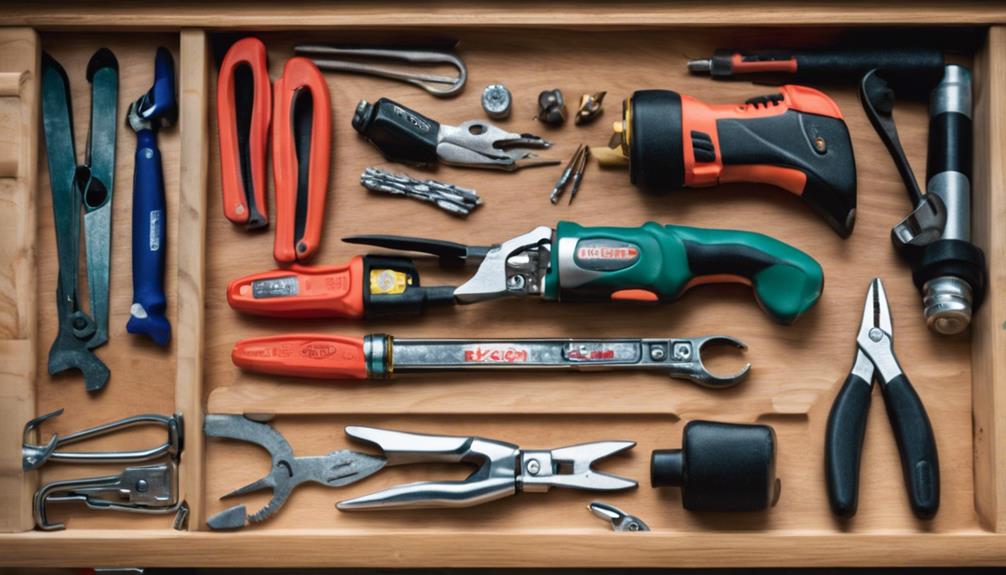
To successfully rekey your car's ignition, you'll need a specific set of tools to streamline the process. Start by gathering essential tools such as a rekeying kit, screwdrivers, and pliers, while also prioritizing your safety with protective gear. We'll now outline each tool's purpose and provide a step-by-step guide to guarantee you're well-prepared.
Essential Tools Overview
Rekeying your car's ignition requires a few essential tools to guarantee the process goes smoothly. Having the right equipment not only empowers you but guarantees key compatibility with your ignition cylinder. Here are three must-have tools for your DIY project:
- Tumbler Tool Kit: This kit helps you adjust the pins inside the ignition cylinder, guaranteeing your new key fits perfectly. When using this kit, it's vital to follow the locksmith process for ignition cylinder repair Understanding the Locksmith Process for Ignition Cylinder Repair.
- Screwdriver Set: A reliable set allows you to disassemble the ignition housing without damaging it.
- Pliers: Essential for gripping and manipulating small parts, especially when working with delicate components.
Equipped with these tools, you'll be ready to tackle the rekeying process with confidence and precision. Take charge of your vehicle's security today!
Safety Equipment Needed
When starting on the rekeying process, it is crucial to prioritize safety by using the right protective equipment. First, invest in high-quality safety gear such as safety goggles to protect your eyes from debris and metal shards. You'll also want to wear durable gloves for personal protection, ensuring your hands are shielded from sharp tools and potential injuries. A sturdy work apron can help keep your tools organized and easily accessible while reducing the risk of accidents. Additionally, consider using a face mask to prevent inhalation of dust or harmful particles. By equipping yourself with the appropriate safety gear, you'll maintain a secure working environment, allowing you to focus on the task at hand without unnecessary risks.
Step-by-Step Tool Guide
Successful rekeying of your car's ignition hinges on having the right tools at your disposal. To tackle various ignition lock types effectively, equip yourself with these essential tools:
- Key Extraction Tool – Vital for removing broken keys from the ignition.
- Rekeying Kit – An all-encompassing kit that includes pins and tools tailored for specific ignition lock types, including luxury and push-to-start models.
- Tension Wrench – Key for applying the right pressure while using rekeying techniques.
With these tools, you'll gain the confidence to undertake the rekeying process. Mastering these techniques not only empowers you to secure your vehicle but also saves on locksmith costs. Make sure you handle these tools with precision and focus to achieve successful results.
Risks of DIY Ignition Rekeying
Why take the risk of attempting to rekey your car's ignition yourself? The cost implications of a failed DIY attempt can quickly escalate. Without professional expertise, you might damage the ignition, leading to expensive repairs or replacements. Additionally, improper rekeying can compromise your vehicle's security, leaving it vulnerable to theft.
| Risk Factor | DIY Attempt | Professional Locksmith |
|---|---|---|
| Cost Implications | Potentially high | Fixed fee, no surprises |
| Time Investment | Lengthy and uncertain | Efficient and timely |
| Security Risk | Increased vulnerability | Enhanced security measures |
| Tool Requirements | Specialized tools needed | Uses industry-standard tools |
| Expertise Level | Limited knowledge | Extensive training |
Consider these risks before deciding to proceed.
Advantages of Hiring a Locksmith

Hiring a professional locksmith offers significant advantages over attempting to handle ignition rekeying yourself. When you choose to hire a locksmith, you gain access to their specialized skills and experience, ensuring the job is done correctly. Here are three compelling reasons to evaluate:
- Locksmith Expertise: Their deep understanding of various ignition systems guarantees effective rekeying without damage.
- Time Efficiency: A professional can complete the task much faster than you could, saving you from frustration.
- Cost Comparison: While DIY might seem cheaper, mistakes can lead to costly repairs that outweigh initial savings.
Why Choose Low Rate Locksmith
Choosing a locksmith with competitive rates can greatly impact your overall experience and satisfaction during the ignition rekeying process. By opting for a low-rate locksmith, you guarantee that you're making a smart financial decision without compromising on service reliability. You can perform a cost comparison between various locksmiths to find one that meets your budget while still delivering quality workmanship. This balance of affordability and dependability is essential, as it assures that your ignition will function properly after rekeying, minimizing the risk of future issues. A locksmith with transparent pricing and proven reliability will not only save you money but also provide peace of mind, knowing your vehicle is secure and operational. Choose wisely for best results.

